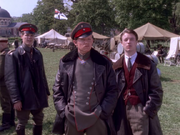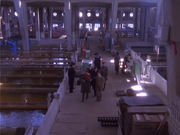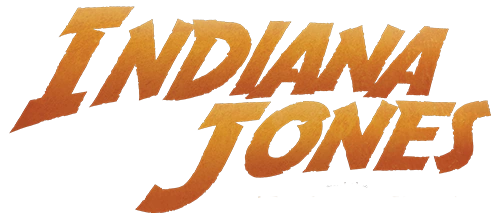m (→Biography) Tag: sourceedit |
|||
| (10 intermediate revisions by 6 users not shown) | |||
| Line 3: | Line 3: | ||
|image=[[File:Fokker.png|250px]] |
|image=[[File:Fokker.png|250px]] |
||
|gender=Male |
|gender=Male |
||
| − | |birth=[[1890]] |
+ | |birth=April 6, [[1890]] |
| − | |death=[[1939]] |
+ | |death=December 23, [[1939]] |
|nationality={{nat-NL}} |
|nationality={{nat-NL}} |
||
| − | |profession=* |
+ | |profession=*Aviation Engineer |
| − | * |
+ | *Businessman |
| − | |allegiances=* |
+ | |allegiances=*Self |
| − | * |
+ | *[[Germany]] |
}} |
}} |
||
| + | {{Quote|I am a scientist, not a philosopher.|Anthony Fokker|Young Indiana Jones and the Attack of the Hawkmen}} |
||
| ⚫ | '''Anthony Fokker''' (born '''Anton Herman Gerard Fokker''') was a Dutch airplane designer and businessman. Born in the Dutch East Indies, he moved to Europe and attended school in Germany. In 1910, he built his first aircraft and became a pilot. In 1912, he founded his first aircraft company in Germany. When [[World War I]] started, the German government nationalized his company and Fokker designed many military craft, including the famed Fokker triplane used by [[Manfred von Richthofen]]. He also developed a way to synchronize the propeller with machine guns. He usually worked at his aircraft factory near [[Berlin]], closely watched at all times. |
||
| + | |||
| ⚫ | '''Anthony Fokker''' (born '''Anton Herman Gerard Fokker''') was a Dutch airplane designer and businessman. Born in the Dutch East Indies, he moved to [[Europe]] and attended school in [[Germany]]. In [[1910]], he built his first aircraft and became a pilot. In [[1912]], he founded his first aircraft company in Germany. When [[World War I]] started, the German government nationalized his company and Fokker designed many military craft, including the famed Fokker triplane used by [[Manfred von Richthofen]]. He also developed a way to synchronize the propeller with machine guns. He usually worked at his aircraft factory near [[Berlin]], closely watched at all times. |
||
| + | |||
| ⚫ | Fokker believed that his projects were the most worthwhile for Germany to pay for: his thought was that the days of [[zeppelin]] were over, and believed that small fast bombers would be more efficient against cities than bulky craft. [[Villehad Forssman]] (whom he considered a "mad scientist") had the opposite view. He believed that science thrived in the times of war due to the money government's put towards weapons development and in the end humanity as a whole benefited from the advances in technology. |
||
| + | |||
| + | ==Biography== |
||
| ⚫ | |||
| ⚫ | Fokker believed that his projects were the most worthwhile |
||
| − | ==History== |
||
| ⚫ | |||
[[File:Manfred_and_Fokker.png|thumb|left|Fokker showing the Red Baron his new design]] |
[[File:Manfred_and_Fokker.png|thumb|left|Fokker showing the Red Baron his new design]] |
||
| ⚫ | In February [[1917]], Fokker visited the airfield of [[Manfred von Richthofen]]. After |
||
| ⚫ | In February [[1917]], Fokker visited the airfield of Baron [[Manfred von Richthofen]]. After Richthofen's duel with [[Charles Nungesser]], Fokker delivered the new fighter he had designed, the [[Fokker DR-1 Triplane]], which was much more powerful than the Baron's [[Albatros D.II]] shot down by Nungesser. According to Fokker, his design could climb faster than any, and twist and turn like a hornet. The Baron acknowledged it as an unrivalled gun platform with wings with which von Richthofen would become known as "The Red Baron". |
||
| ⚫ | The powers of |
||
| ⚫ | The Allied powers of [[World War I]] were convinced they could make Fokker defect. [[Great Britain]] offered two million pounds to make him work for them and [[France]] decided to offer even more. [[Indiana Jones]], working as a spy for French intelligence, was sent to contact Fokker in Germany in an attempt to buy his loyalty and aviation expertise. |
||
| ⚫ | Fokker was to be found in [[Hotel Franz Josef]], [[ |
||
| + | |||
| ⚫ | Fokker was to be found in [[Hotel Franz Josef]], [[Hanover]] on his way to [[Ahlhorn Naval Base]] for an official inspection tour of [[Villehad Forssman]]'s new invention, the [[Pohl Giant]]. Indy was sent to deliver a proposal letter to his contact, the hall porter [[Max]], and wait for his reply; if he accepted, another agent would arrive and make arrangements to get him out of Germany. However, Fokker was departing earlier than expected. Just as Indy arrived at the hotel, Max failed to delay Fokker to pass on the letter as Fokker's train would leave shortly. Indy followed Fokker onto the train heading to [[Ahlhorn]], who was traveling with German military officers [[Werner|Admiral Werner]] and [[Von Kramer|General von Kramer]]. The only way Indy was able to contact Fokker was by dressing as a steward and slipping a note into his pocket notifying Fokker of his presence. |
||
| + | |||
| ⚫ | They arrived at Ahlhorn and Indy posed as Fokker's valet in order to accompany Fokker and the Germans heading to the military base. As Indy brought Fokker's bags to his room, he could at last get to speak with him. Fokker was given the letter, but Werner and von Kramer arrived for Fokker with aircraft designer [[Villehad Forssman]] and a compliment of German military officers before he could reply. Fokker was told by Forssman that he had designed a new [[Pohl Giant|aircraft fighter]] which would be arriving later in the day. Fokker headed out with them and Indy wrote a letter to French Intelligence which appeared to be a request for a hotel reservation, but invisible ink contained a warning of the new secret weapon. |
||
| ⚫ | They arrived at Ahlhorn and Indy posed as Fokker's valet in order to accompany Fokker and the Germans heading to the military base. As Indy brought Fokker's bags to his room, he could at last |
||
[[File:Hydrogen_process.png|thumb|Fokker tours the hydrogen procession factory in Ahlhorn Naval Base]] |
[[File:Hydrogen_process.png|thumb|Fokker tours the hydrogen procession factory in Ahlhorn Naval Base]] |
||
| ⚫ | When Fokker returned from the tour to the hydrogen laboratory, he told Indy that he was not interested |
||
| ⚫ | When Fokker returned from the tour to the hydrogen laboratory, he told Indy that he was not interested as the money the French were offering was too little and the facilities in Germany far better. Indy asked him if he cared if his work was put to the use of good or evil but Fokker simply replied that in war, all sides considered themselves to be good and told Jones to leave. |
||
| ⚫ | Baron von Richthofen arrived at the Ahlhorn base to see Forssman's invention. Once there Fokker and von Richthofen witnessed the arrival of Forssman's monstrosity, a gigantic triplane with ten engines that could fly from [[Germany]] to [[New York]] in order to drop bombs. Fokker claimed that if he was allowed to work on it he could make |
||
| ⚫ | Baron von Richthofen arrived at the Ahlhorn base to see Forssman's invention. Once there, Fokker and von Richthofen witnessed the arrival of Forssman's "monstrosity", a gigantic triplane with ten engines that could fly from [[Germany]] to [[New York]] in order to drop bombs. Fokker claimed that if he was allowed to work on it he could make the plane fly twice as far. Indy took pictures of it from the top of the hangar, but von Richthofen spotted him. German soldiers rushed Indy, but a shot from a soldier's gun ignited fuel stored in the hangar. Indy escaped in the confusion and the fire ignited the hydrogen stored in the hanger for the Zeppelins. Fokker and the others fled to a safe distance and the resulting explosion took out the entire airfield including the Forssman's new aircraft. |
||
| ⚫ | |||
| ⚫ | |||
| ⚫ | |||
[[Craig Kelly]] portrayed Fokker in ''[[Young Indiana Jones and the Attack of the Hawkmen]]''. |
[[Craig Kelly]] portrayed Fokker in ''[[Young Indiana Jones and the Attack of the Hawkmen]]''. |
||
| + | |||
| ⚫ | |||
==Appearances== |
==Appearances== |
||
| − | *{{YIJC|Young Indiana Jones and the Attack of the Hawkmen |
+ | *{{YIJC|Young Indiana Jones and the Attack of the Hawkmen}} {{Edited Into}} ''[[Attack of the Hawkmen]]'' {{Fa}} |
| − | *{{YIJC|Austria, March 1917 |
+ | *{{YIJC|Austria, March 1917}} {{Edited Into}} ''[[Adventures in the Secret Service]]'' {{Fm}} |
| − | ==See |
+ | ==See also== |
*''[[Anthony Fokker - The Flying Dutchman]]'' |
*''[[Anthony Fokker - The Flying Dutchman]]'' |
||
==External links== |
==External links== |
||
| + | *{{SW|url=community/news/films/f20080407/index.html?page=2|text=The Lost Chronicles of ''Young Indiana Jones''}} |
||
*{{WP|Anthony Fokker}} |
*{{WP|Anthony Fokker}} |
||
| + | |||
| − | [[Category:Aviators|Fokker, Anthony]] |
||
| − | + | {{DEFAULTSORT:Fokker, Anthony}} |
|
| − | [[Category: |
+ | [[Category:Aviators]] |
| − | [[Category: |
+ | [[Category:Characters appearing in Young Indiana Jones]] |
| − | [[Category:Dutch |
+ | [[Category:Dutch]] |
| + | [[Category:Historical figures]] |
||
| + | [[Category:Scientists & Engineers]] |
||
| + | [[Category:Deceased]] |
||
Revision as of 19:31, 23 February 2015
- "I am a scientist, not a philosopher."
- ―Anthony Fokker[src]
Anthony Fokker (born Anton Herman Gerard Fokker) was a Dutch airplane designer and businessman. Born in the Dutch East Indies, he moved to Europe and attended school in Germany. In 1910, he built his first aircraft and became a pilot. In 1912, he founded his first aircraft company in Germany. When World War I started, the German government nationalized his company and Fokker designed many military craft, including the famed Fokker triplane used by Manfred von Richthofen. He also developed a way to synchronize the propeller with machine guns. He usually worked at his aircraft factory near Berlin, closely watched at all times.
Fokker believed that his projects were the most worthwhile for Germany to pay for: his thought was that the days of zeppelin were over, and believed that small fast bombers would be more efficient against cities than bulky craft. Villehad Forssman (whom he considered a "mad scientist") had the opposite view. He believed that science thrived in the times of war due to the money government's put towards weapons development and in the end humanity as a whole benefited from the advances in technology.
Biography
Remembering his childhood when he threw stones between the sails of a rotating windmill, Anthony Fokker built his synchronization mechanism out of that principle. The first plane with a tubular frame Fokker built was in a zeppelin hangar in Baden-Baden.

Fokker showing the Red Baron his new design
In February 1917, Fokker visited the airfield of Baron Manfred von Richthofen. After Richthofen's duel with Charles Nungesser, Fokker delivered the new fighter he had designed, the Fokker DR-1 Triplane, which was much more powerful than the Baron's Albatros D.II shot down by Nungesser. According to Fokker, his design could climb faster than any, and twist and turn like a hornet. The Baron acknowledged it as an unrivalled gun platform with wings with which von Richthofen would become known as "The Red Baron".
The Allied powers of World War I were convinced they could make Fokker defect. Great Britain offered two million pounds to make him work for them and France decided to offer even more. Indiana Jones, working as a spy for French intelligence, was sent to contact Fokker in Germany in an attempt to buy his loyalty and aviation expertise.
Fokker was to be found in Hotel Franz Josef, Hanover on his way to Ahlhorn Naval Base for an official inspection tour of Villehad Forssman's new invention, the Pohl Giant. Indy was sent to deliver a proposal letter to his contact, the hall porter Max, and wait for his reply; if he accepted, another agent would arrive and make arrangements to get him out of Germany. However, Fokker was departing earlier than expected. Just as Indy arrived at the hotel, Max failed to delay Fokker to pass on the letter as Fokker's train would leave shortly. Indy followed Fokker onto the train heading to Ahlhorn, who was traveling with German military officers Admiral Werner and General von Kramer. The only way Indy was able to contact Fokker was by dressing as a steward and slipping a note into his pocket notifying Fokker of his presence.
They arrived at Ahlhorn and Indy posed as Fokker's valet in order to accompany Fokker and the Germans heading to the military base. As Indy brought Fokker's bags to his room, he could at last get to speak with him. Fokker was given the letter, but Werner and von Kramer arrived for Fokker with aircraft designer Villehad Forssman and a compliment of German military officers before he could reply. Fokker was told by Forssman that he had designed a new aircraft fighter which would be arriving later in the day. Fokker headed out with them and Indy wrote a letter to French Intelligence which appeared to be a request for a hotel reservation, but invisible ink contained a warning of the new secret weapon.

Fokker tours the hydrogen procession factory in Ahlhorn Naval Base
When Fokker returned from the tour to the hydrogen laboratory, he told Indy that he was not interested as the money the French were offering was too little and the facilities in Germany far better. Indy asked him if he cared if his work was put to the use of good or evil but Fokker simply replied that in war, all sides considered themselves to be good and told Jones to leave.
Baron von Richthofen arrived at the Ahlhorn base to see Forssman's invention. Once there, Fokker and von Richthofen witnessed the arrival of Forssman's "monstrosity", a gigantic triplane with ten engines that could fly from Germany to New York in order to drop bombs. Fokker claimed that if he was allowed to work on it he could make the plane fly twice as far. Indy took pictures of it from the top of the hangar, but von Richthofen spotted him. German soldiers rushed Indy, but a shot from a soldier's gun ignited fuel stored in the hangar. Indy escaped in the confusion and the fire ignited the hydrogen stored in the hanger for the Zeppelins. Fokker and the others fled to a safe distance and the resulting explosion took out the entire airfield including the Forssman's new aircraft.
Behind the scenes
Craig Kelly portrayed Fokker in Young Indiana Jones and the Attack of the Hawkmen.
After WWI, Fokker moved back to the Netherlands and started a new aircraft company. Eventually he moved to New York City, where he opened another aircraft company and became an American citizen. Fokker died in 1939. His nickname was "The Flying Dutchman".
Appearances
- The Young Indiana Jones Chronicles – "Young Indiana Jones and the Attack of the Hawkmen" → Attack of the Hawkmen (First appearance)
- The Young Indiana Jones Chronicles – "Austria, March 1917" → Adventures in the Secret Service (First mentioned)
